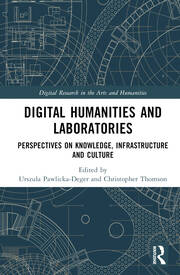As I was writing last month’s post on my recent publications, I realized something. Throughout my time as a graduate student, I’ve developed some consistent strategies to get my work published. Even if I wasn’t always aware of it, I used the same techniques to get my work in print while still prioritizing dissertation research. Today then, I’d like to share some of these tips. They are for anyone interested in publishing while in grad school, or whenever you’re busy with other priorities.



As with all my tips-related posts, I’m sharing what worked for me. If you find something better for your work habits or schedule, by all means, use that. But if something here resonates with you, feel free to try it for yourself.
Make Your Research Work for You
Arguably the most important way that I’ve balanced publication opportunities with the dissertation is that nearly everything I’ve published has developed out of dissertation work. Books that I read as part of my research became the subject of book reviews. Conference papers presenting sections of dissertation chapters expanded into journal articles or book chapters. Even my coauthored chapter discussing the Equality Lab linked back to the dissertation, as questions about audience engagement and institutional relevance are core questions guiding my historical research.
In addition to circulating my research with a (slightly) larger audience, working on these publications has also benefitted the dissertation itself. Distilling my research into shorter articles and chapters required filtering out unnecessary details and articulating a clear thesis. Both have been invaluable in helping me turn my dissertation from a discombobulated mess into something coherent.
Revisiting Other Work or Interests
Of course, not all publications have to be about the dissertation. On the contrary, it’s not a bad idea to publish outside of it. It shows you have more than one scholarly interest. The key is that you don’t want to have these side projects take time away from the dissertation.
I got around this by either writing shorter pieces, or completing longer works using previous research and draft manuscripts. In the fall of 2019, I reworked an older manuscript on Howard Cook’s wartime drawings into an article for Arts. In 2022, I wrote a short piece for South Writ Large by discussing my interests in natural history, painting, and the sense of place.
What both pieces had in common was that they required relatively little work to get the manuscripts ready. I initially drafted the Howard Cook piece in 2014-2015. Getting it published was less about writing anything new than updating my research and prose to accommodate my current interests. Similarly, the South Writ Large essay was relatively short. It also entailed personal reflection as well as historical research, so I didn’t need to do a ton of preparatory work.
Making the Most of Conferences
Conferences have a mixed reputation in academia due to their expense, format, and limited accessibility. Nonetheless, they can be a great place to develop future publications. Two of the publications I discussed in last month’s post developed out of conference paper talks. The Howard Cook article I mentioned also began as a conference talk. Feedback from other scholars can help you refine your research or expand a talk into an article.
Just as importantly, the networking opportunities at conferences can lead to publications. It took me years to figure this out, but when it comes to conferences, the sessions themselves are secondary. Sure, you can learn a lot by listening to other people’s talks. I’ve cited plenty of conference papers in my work. But these events are really about networking. Getting to know journal editors in-person can make it easier to pitch an article because you’re not going in cold. Connecting with people who share similar interests can also encourage partnerships and collaborations that lead to publications down the road.
Experiences as Publications
Just as side interests can lead to publications, so can your experiences as a graduate student (or anything else). My experiences with co-organizing symposia for the Equality Lab led to a book chapter analyzing digital humanities labs through hospitality. That experience, in turn, gave me the confidence to draft an article on the pedagogy underpinning my Museums & Crisis seminar. I haven’t found the right journal for this manuscript yet, but I’ll have a piece ready when I do.
When you’re looking for ways to publish then, consider the work you do outside of an archive or book. Observing your experiences with a graduate assistantship, or even the day-to-day routines of classes, can form the basis of a scholarly piece.
Document Your Reflections and Experiences
If you’re interested in publishing your work in any way, consistently documenting your experiences and reflections can make that process easier. Writing down your ideas in a journal, blog, social media post, or other platforms can provide raw material for future publications.
That’s one of the reasons why I run this blog. For the past five years, I’ve dedicated posts to WPA exhibition design, the labor of women in enabling archival research, and the shared connections between different archival repositories and vanished community art centers (that’s a future post). Aside from providing readers with insight into my process, I’ve written these posts to provide fodder for future publications.
In addition to documenting your reflections, noting relevant evidence to support your ideas can make it easier to draft manuscripts. Alongside my blog posts, I’ve created spreadsheets listing relevant archival documents and their locations. I learned this tip from one of my committee members, and I’m grateful for it. Whenever I decide to write that article on missing art centers or typewriter shortages, I can turn to my old blog posts and my spreadsheets to find the building blocks of my manuscripts.
For a Publication, a Little Bit of Time Goes a Long Way
When it comes to actual writing habits, I’m a proponent of incremental work. In my experience, working on one project consistently every day, five days a week, leads to better results than trying to complete it in one go.
This has been especially true with publications. For nearly all of the works I’ve mentioned, I worked on them for about 30-60 minutes a day when I was actively writing or revising them. I also never worked on more than one publication at a time. An hour or less per day minutes may not sound like much, but over a 5-day work week, it accumulates in several hours of work. Repeat that over a few weeks, and you’ve got a manuscript.
Working in small but consistent time increments also made publications less intimidating because I never had to spend too much time on them. It also left plenty of time for my daily dissertation work.
Networking Leads to Publication
This last point is a bit redundant given what I discussed about conferences earlier. In my experience though, networking has played a huge role in getting my work published. The relationships I’ve developed through conferences, coursework, and interacting with my cohorts have resulted in lots of fruitful projects. More broadly, engaging with people in your field (and beyond) can enrich your work by introducing you to different methods, research topics, questions, and intersections.
That said, cold proposals can and do lead to published work. My article on Howard Cook developed out of a CFP, and I didn’t know any of the editors when I submitted it. For the majority of my works, however, I had at least one personal connection that smoothed the road to publication, whether it was a coauthor or an editor I’d met.
Final Thoughts on Publication
Of course, you don’t need to publish your work. I know publish or perish is a cliche within academia, but you shouldn’t be forced to get your work out there if you’re not ready. Indeed, I’ve had plenty of cohorts deliberately hold off until after graduate school so that they could clarify their unique scholarly intervention. Ultimately, you need to do what’s best for you.
If you are interested in publication, however, I’ve found these tactics helpful.